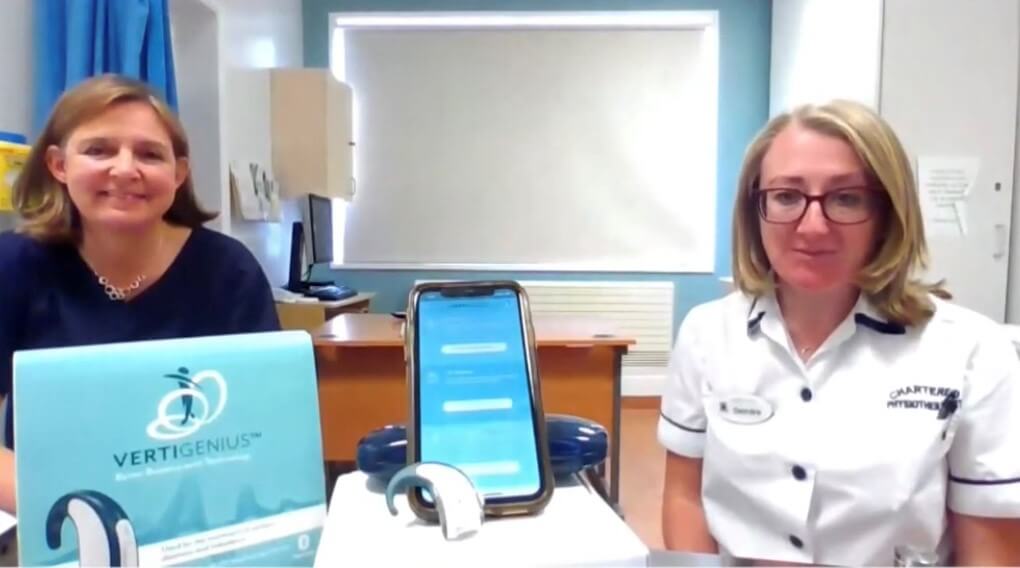
A simple device has transformed rehabilitation for patients with dizziness and balance problems from manual in-person monitoring to a wearable sensor, allowing clinicians to monitor and tweak a patient’s treatment remotely, if required.
The creation of the sensor that is transforming care for patients has earned the physiotherapy team at Beaumont Hospital the Innovation in Digital Excellence award within the 2021 HSE Health Excellence Awards.
Deirdre Murray, Clinical Specialist Physistherapist in Beaumont Hospital, said the device, called ‘Vertigeniu’s has been revolutionary for her treatment of these patients, particularly during Covid-19.
“I see patients who had dizziness and balance problems for vestibular rehabilitation. During COVID-19 we weren’t able to see our patients for the regular review and for progression of exercises that they normally require. And so, we collaborated with Dr Dara Meldrum from Trinity College Dublin who had been working on Vertigenius. We hope we will be able to use this technology going forward to improve the efficiency of the care that we provide for these patients with the vestibular (dizziness and balance) issues.”
Vertigenius is a medical device that uses smart technology to assess balance, dynamic visual acuity and gait speed to rehabilitate patients with balance disorders more effectively.
It has totally transformed the area of vestibular rehabilitation from manual in-person monitoring to a wearable sensor, a patient app and a clinician’s dashboard that can monitor and tweak a patient’s treatment remotely if required.
Dr Meldrum said, “When you have a vestibular problem, you don’t like moving your head because it makes you feel dizzy, anxious and fearful. What we do is we try to get patients moving their heads again. So we’ve developed a sensor that can track the head movement during exercise and we can also track symptoms. The sensor talks to an app which a patient downloads from the app store.
“In the app, they get their exercise programme. They can see how to do it, and it also tracks what they’re doing through the head sensor. All this information gets fed back into Beaumont Hospital into a clinician portal which is GDPR compliant and very secure. And the therapist can then see how the patient is doing and remotely prescribe a changed exercise programme if necessary.
“It’s really cutting down the amount of time that a patient has to come to hospital, which is really valuable during Covid times, but it also saves the therapist time. There is no more looking for pieces of paper. They can just press a button and see how the patient is doing and send the patient exercises instantly.”

